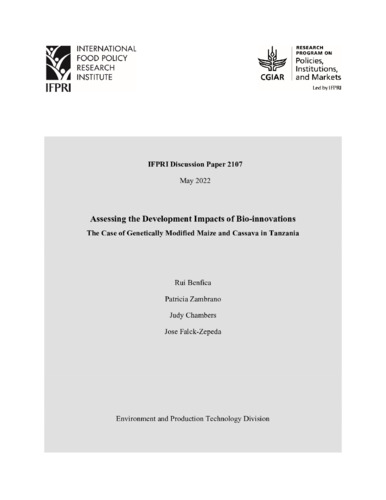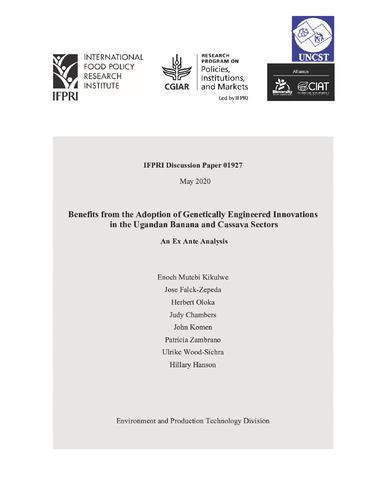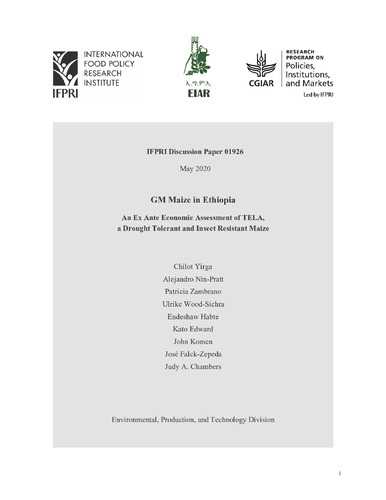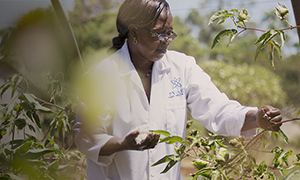Assessing the development impacts of bio-innovations: The case of genetically modified maize and cassava in Tanzania
Tanzania’s agriculture faces persistent low crop productivity due to endogenous and exogenous factors, particularly low and unpredictable rainfall, and the incidence of pests. To address these challenges, the government and partners are making efforts to develop and deploy Genetically Modified (GM) Maize varieties with drought tolerance and insect resistant traits (WEMA), and Cassava Brown Streak Disease (CBSD) resistant varieties. This analysis overcomes limitations from earlier assessments of the impacts of those GM crops by accounting for trade-offs in resource competition and considering the indirect effects of adoption and yield gains from GM maize and cassava varieties on the broader economy, the Agri-Food System (AFS), and on household level outcomes. It extends the BioRAPP analysis to an ex-ante economywide framework. We reveal several findings. First, GM maize and cassava (individually and jointly) have positive impacts in the economy, the AFS, and the poverty, particularly in rural areas and among the poorest households. Second, given its relatively greater relevance in output and employment, and the stronger linkages in the AFS, the effects of GM maize on GDP and AFS growth, and poverty is relatively stronger than those from GM cassava. Third, as expected, relatively greater effects are found in higher adoption and high yield gains scenarios, and, in each scenario, the effects on the poorest households are greater than that for the higher quintiles. Furthermore, differential impact across scenarios is also greater amongst the poorest, while the differences are minimal for the top quintile. Finally, the high variation of results across scenarios, and the significant effects of the high adoption/high yield change scenario, suggest that efforts will be critical to ensure the realization of the maximization of adoption rates while ensuring the materialization of the yield growth potential of the GM varieties through the efficient use of technical recommendations on crop production management, and the introduction of the right investments and policy incentives.
Authors
Benfica, Rui; Zambrano, Patricia; Chambers, Judith A.; Falck-Zepeda, José B.
Citation
Benfica, Rui; Zambrano, Patricia; Chambers, Judith A.; and Falck-Zepeda, José Benjamin. 2022. Assessing the development impacts of bio-innovations: The case of genetically modified maize and cassava in Tanzania. IFPRI Discussion Paper 2107. Washington, DC: International Food Policy Research Institute (IFPRI). https://doi.org/10.2499/p15738coll2.135055.
Keywords
Tanzania; Eastern Africa; Sub-saharan Africa; Africa; Models; Agricultural Products; Policies; Poverty Alleviation; Maize; Computable General Equilibrium Models; Innovation Adoption; Agrifood Systems; Cassava; Yields; Genetically Modified Organisms
Access/Licence
Open Access
Project
Policies, Institutions, and Markets









